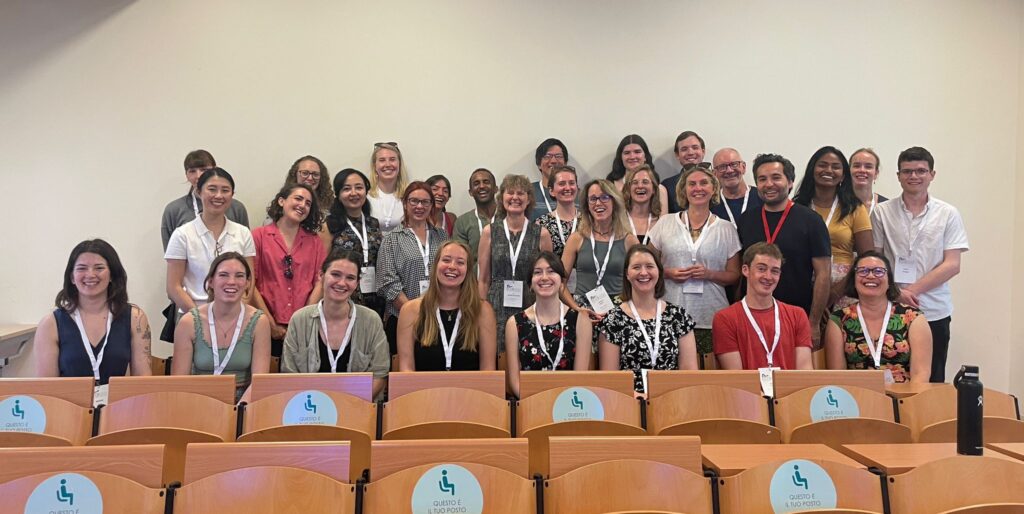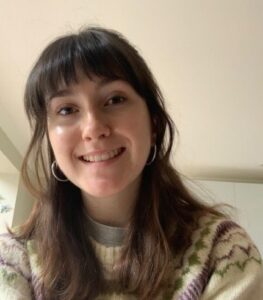University of Oxford
11a Mansfield Rd
OX1 3SZ
UK

From the 17th to the 21st of June, Bologna was host to some of the eminent ecologists and conservationists in the field for the 7th European Congress of Conservation Biology (ECCB). As an early-career researcher, this conference was my first, and represented a novel opportunity to interact not just with the science, but with the scientific community as well. Participants debated contentious topics in the field, displayed a tangible passion for their work, and explored a huge range of approaches for meeting the goal of biodiversity positivity by 2030. This encouraged me to view conservation as a more rich, dynamic and creative scientific field than ever before. I was excited to watch as gaps in the literature were identified and ideas for future papers were conceived in real time, showing just how many possibilities exist within research.
As a first timer, it was great to experience the conference with some of my fellow master’s students, and to get support from the many other ICCS attendees. Seeing such a strong ICCS representation at the conference in the lunch event, talks, posters and stands gave me a lot of pride in being part of this network of active researchers. It was also valuable to talk to other conference participants. “Networking” has seemed daunting to me before, but this conference showed me that networking is founded on simply being friendly and having a shared interest or goal. This approach helped me to meet lots of interesting people and get a sense of the research being done at a global scale. Information presented at the conference was multimodal. I particularly enjoyed a talk about Icelandic maerl beds, a poster about the reintroduction of European bison to Romania, and an informal discussion about the invasive threat of honeybees. I was able to present a poster on day four of the conference which gave me the chance to communicate the same passion about my project that I had seen other people display throughout the week. This led to some very thought-provoking conversations with people and introduced new perspectives on my work from scientists across diverse research areas.

A particularly valuable experience from the conference for me was a mentoring event on the penultimate night. Mentees had the opportunity to chat to mentors in short five-minute sessions, with the freedom to discuss any aspect of working in conservation. I had some very honest conversations with people that had experienced the same feelings of post-graduation confusion about where to go next and was offered advice that was both practical and reassuring. In a field that feels as urgent and demanding as conservation, it can sometimes feel as though there is no space to take a pause and figure out which direction to go in. These sessions showed me that it is okay to carve out some time to explore opportunities if it means that you can get a sense for what research is being done and what you are most drawn to. I was told one evening to “not let anyone put you in a box” of the type of research you can do. This kind of perspective was refreshing, and seems to encourage the same kind of interdisciplinary, holistic thinking that ICCS represents.
Overall, ECCB was an amazing entry into the world of conferences, showing me an especially human side to conservation which can be lost when you’re just analysing data on a laptop or racing to meet deadlines. The information I learned in talks and people I met will stay with me for a long time, and I look forward to future conferences as I begin to forge a career in research.

